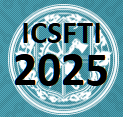INCREASING THE EFFICIENCY OF DATA PROCESSING USING QUANTUM COMPUTATIONS
Keywords:
Quantum computing, hybrid quantum-classical systems, data transformation, quantum accelerationAbstract
This article explores how emerging quantum computing techniques can be integrated into classical ETL pipelines to improve the efficiency of key data extraction, transformation, and validation operations through hybrid quantum-classical architectures.
References
Loshin, D. (2001). ETL solutions: Tools and techniques for extracting, cleaning, conforming, and delivering data. Morgan Kaufmann.
Inmon, W. (2005). Building the data warehouse (4th ed.). Wiley.
Zaharia, M., Chowdhury, M., Franklin, M. J., Shenker, S., & Stoica, I. (2016). Apache Spark: A unified engine for big data processing. Communications of the ACM, 59(11), 56–65. https://doi.org/10.1145/2934664
Grover, L. K. (1996). A fast quantum mechanical algorithm for database search. In Proceedings of the twenty-eighth annual ACM symposium on Theory of computing (pp. 212–219). ACM. https://doi.org/10.1145/237814.237866
Lloyd, S., Mohseni, M., & Rebentrost, P. (2013). Quantum algorithms for supervised and unsupervised machine learning. arXiv. https://arxiv.org/abs/1307.0411
Farhi, E., Goldstone, J., & Gutmann, S. (2014). A quantum approximate optimization algorithm. arXiv. https://arxiv.org/abs/1411.4028
Preskill, J. (2018). Quantum computing in the NISQ era and beyond. Quantum, 2, Article 79. https://doi.org/10.22331/q-2018-08-06-79
Grover, L. K. (1996). A fast quantum mechanical algorithm for database search. In Proceedings of the twenty-eighth annual ACM symposium on Theory of computing (pp. 212–219). ACM. https://doi.org/10.1145/237814.237866
Lloyd, S., Mohseni, M., & Rebentrost, P. (2013). Quantum algorithms for supervised and unsupervised machine learning. arXiv. https://arxiv.org/abs/1307.0411
Schuld, M., Sinayskiy, I., & Petruccione, F. (2015). An introduction to quantum machine learning. Contemporary Physics, 56(2), 172–185. https://doi.org/10.1080/00107514.2014.964942
Giovannetti, V., Lloyd, S., & Maccone, L. (2008). Quantum random access memory. Physical Review Letters, 100(16), 160501. https://doi.org/10.1103/PhysRevLett.100.160501
Preskill, J. (2018). Quantum computing in the NISQ era and beyond. Quantum, 2, Article 79. https://doi.org/10.22331/q-2018-08-06-79
Zhang, X., Xue, Y., & Xu, Y. (2022). Hybrid quantum-classical data pipelines: Opportunities and limitations. Journal of Quantum Information Science, 12(1), 45–60. https://doi.org/10.4236/jqis.2022.121003
Vassiliadis, P., Simitsis, A., & Skiadopoulos, S. (2002). Conceptual modeling for ETL processes. In Proceedings of the 5th ACM international workshop on Data Warehousing and OLAP (pp. 14–21). ACM. https://doi.org/10.1145/583890.583894
Apache Software Foundation. (n.d.). Apache NiFi: Scalable data routing and transformation. https://nifi.apache.org
Grover, L. K. (1996). A fast quantum mechanical algorithm for database search. In Proceedings of the twenty-eighth annual ACM symposium on Theory of computing (pp. 212–219). ACM. https://doi.org/10.1145/237814.237866
Schuld, M., & Petruccione, F. (2018). Supervised learning with quantum computers. Springer. https://doi.org/10.1007/978-3-319-96424-9
Rebentrost, P., Mohseni, M., & Lloyd, S. (2014). Quantum support vector machine for big data classification. Physical Review Letters, 113(13), 130503. https://doi.org/10.1103/PhysRevLett.113.130503
Farhi, E., Goldstone, J., & Gutmann, S. (2014). A quantum approximate optimization algorithm. arXiv. https://arxiv.org/abs/1411.4028
Havlíček, V., Córcoles, A. D., Temme, K., Harrow, A. W., Kandala, A., Chow, J. M., & Gambetta, J. M. (2019). Supervised learning with quantum-enhanced feature spaces. Nature, 567(7747), 209–212. https://doi.org/10.1038/s41586-019-0980-2




